What is the Least Popular Month to Have a Wedding? Discover the Best Time to Tie the Knot!
Choosing a wedding month can be a big decision. While many couples prefer the warmth and beauty of spring and fall, some months see fewer weddings. January is one of the least popular months to have a wedding. This is largely due to the colder weather and the busy holiday season that precedes it.
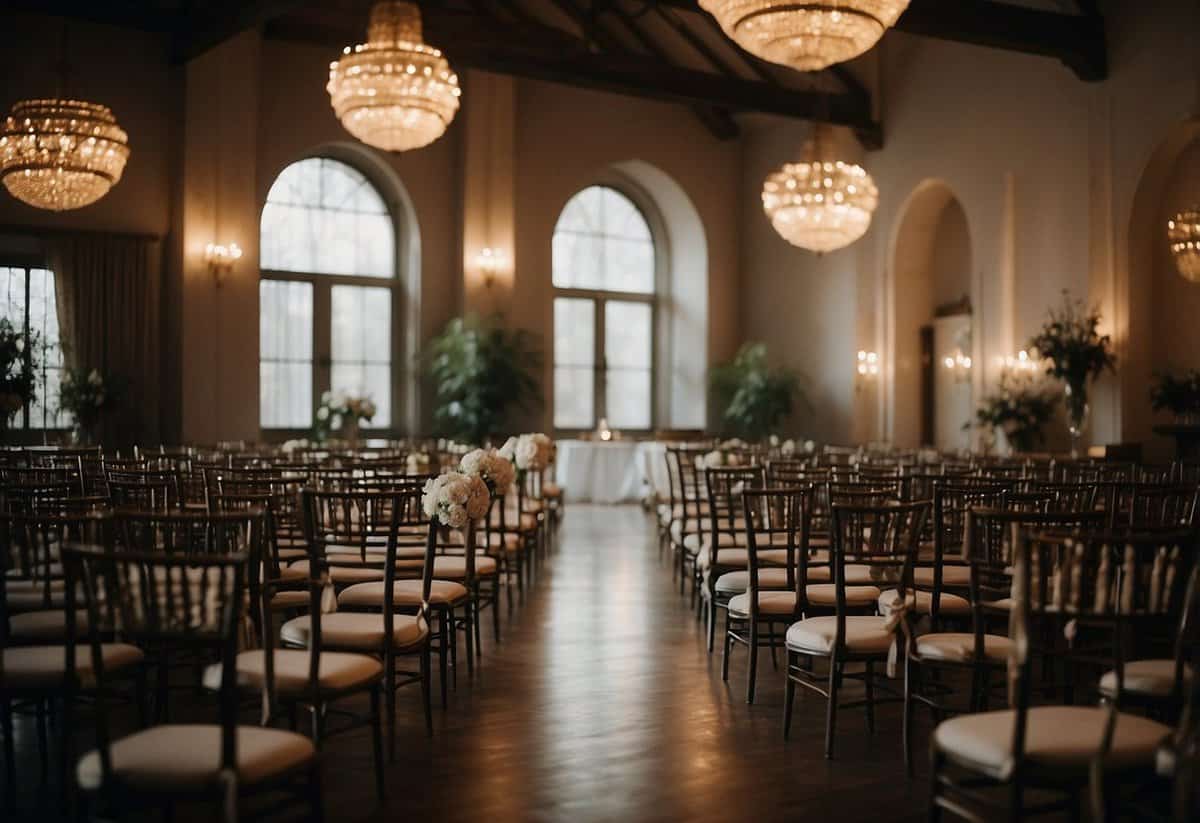
You might wonder why this could be an advantage. Planning your wedding in a less popular month can lead to cost savings and more availability with venues and vendors. Plus, your special day will stand out, as it won’t be competing with numerous other weddings.
So, if you’re open to embracing the charm of a winter wedding, consider January. It’s an opportunity to enjoy a unique celebration with all the winter magic and fewer scheduling conflicts.
Factors Influencing Wedding Month Choice
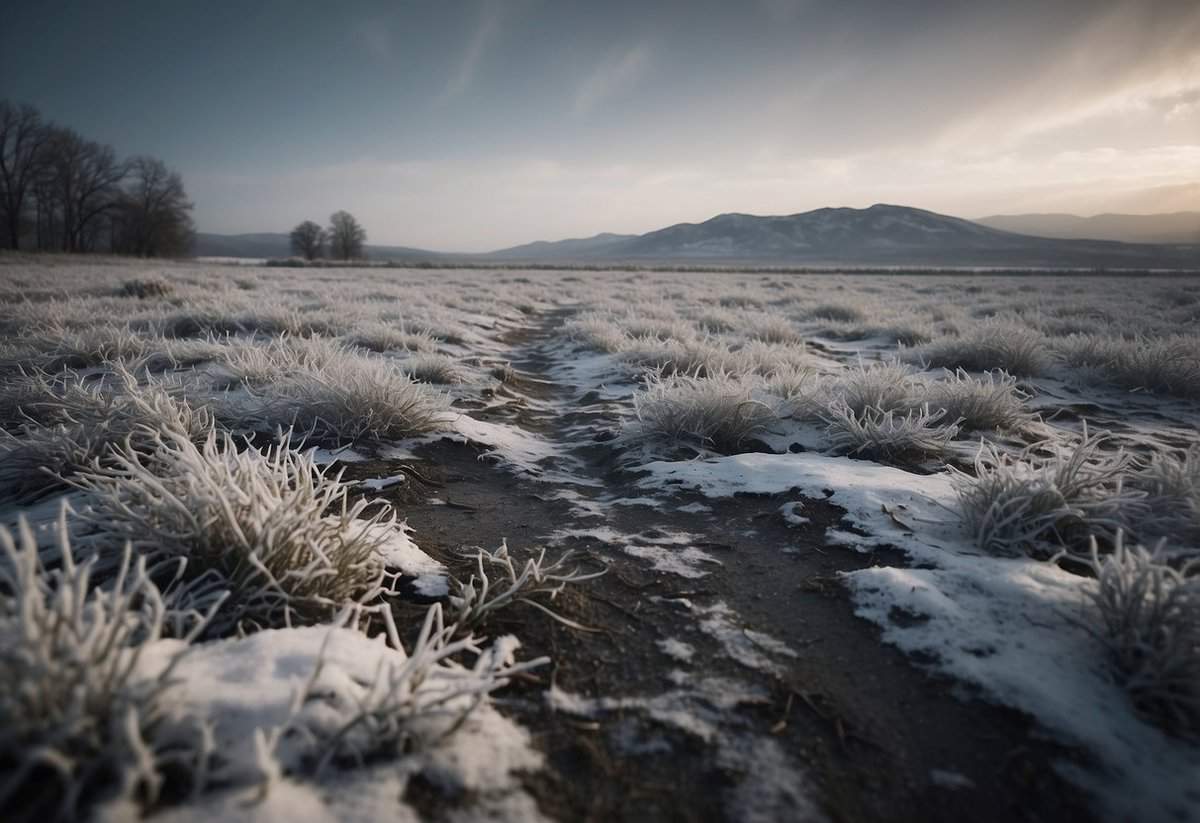
When choosing a wedding month, several key factors can greatly influence your decision. From the type of weather you prefer to how much you’re willing to spend, careful thought is needed to find the ideal time for your big day.
Weather and Season Preferences
Weather plays a huge role in picking your wedding month. If you love the warmth, summer months like June might appeal to you because of the long daylight hours and sunny skies. On the flip side, winter can provide a cozy ambiance with snowy backdrops if you don’t mind the cold.
Fall is popular for its brilliant fall foliage, adding a natural splash of color to your photos. Spring offers blooming flowers, creating a vibrant, lush setting. Think about what kind of atmosphere you want, whether it’s a sunny day, snowy scene, or a bloom-filled setting.
Financial Considerations
The cost of weddings can change drastically depending on the month. Peak seasons like summer and fall often drive up costs because of higher demand. You may find it harder to book your preferred venues and vendors during these times since they get booked up quickly.
Winter months like January and February are less popular for weddings, which can mean significant discounts. Venues and vendors often lower their prices during the off-season to attract more business. If you’re on a tight budget, planning your wedding during these cooler months could save you a lot of money.
Holiday Seasons and Important Dates
Planning around holidays is crucial too. Many couples avoid holiday weekends like Christmas, New Year, or Valentine’s Day because their guests might have other plans. It’s essential to consider how these dates could impact attendance and availability of venues.
On the other hand, some people prefer to get married on special dates. For example, Mother’s Day or even a memorable date for your relationship can add personal significance. Balancing these dates with practical considerations is key to ensuring both you and your guests have a wonderful experience.
Least Popular Wedding Months Explained
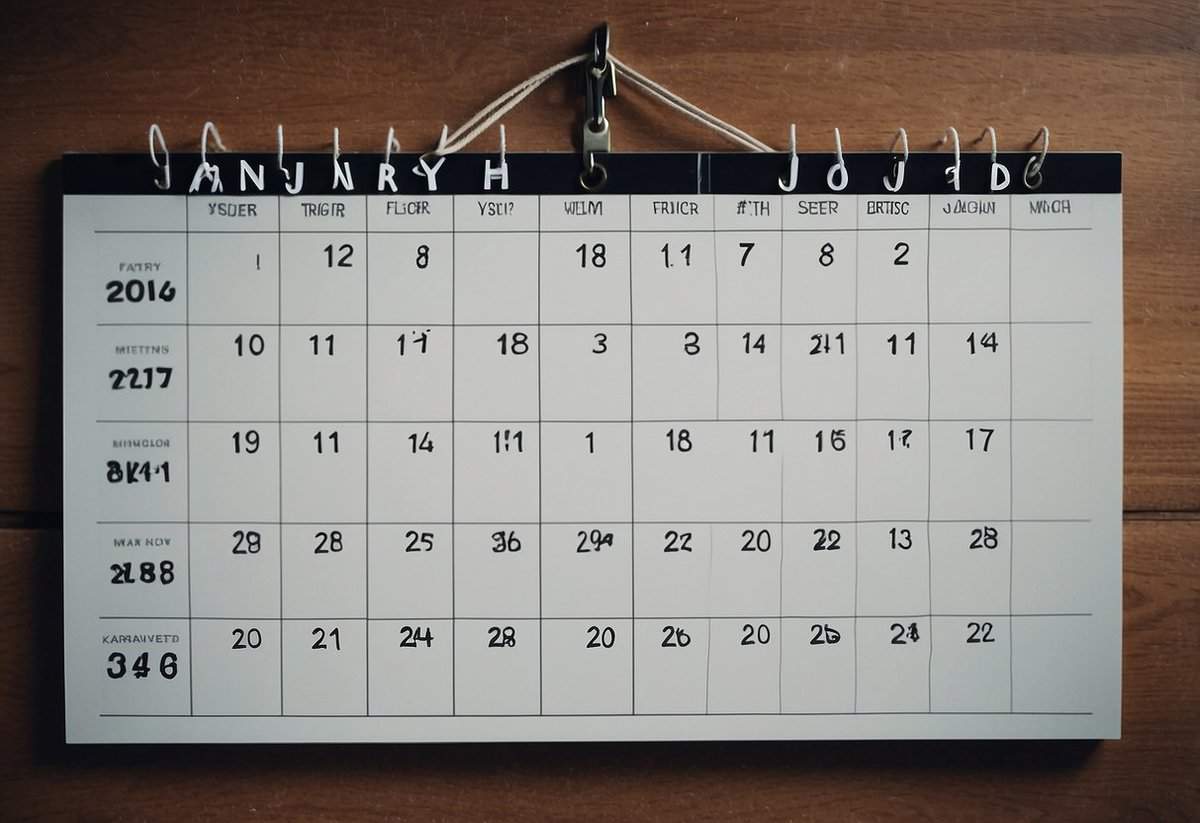
Winter weddings are the least popular because of the challenges the season brings. Yet, they also offer unique benefits that other seasons don’t provide.
Challenges of the Off-Season
Winter months (December, January, February) are less favored for weddings due to cold temperatures and higher chances of snow. Cold weather can make it tough to host outdoor weddings, and it might be hard for guests to travel, especially if they face snowstorms or icy roads.
Many venues and vendors may have reduced availability during the winter as they plan vacations or shut down for the season. Winter holidays such as Christmas and New Year’s can increase travel costs and make it more difficult to find open dates for your venue.
Pros and Cons of Different Seasons
Winter:
- Pros: Lower costs, unique photo opportunities with snow, and easier vendor availability.
- Cons: Weather-related travel issues, fewer flower choices, and a limited selection of venues.
Spring:
- Pros: Mild temperatures, fresh flowers, and a broad range of venue options.
- Cons: Unpredictable weather and higher costs for certain flowers.
Summer:
- Pros: Long daylight hours and a greater chance of good weather.
- Cons: Higher venue costs and the possibility of rain in some regions like New York and the East Coast.
Fall:
- Pros: Beautiful foliage, mild temperatures, and lower travel costs.
- Cons: Weather can be unpredictable, and popular for other events which means limited venue availability.
Choosing the least popular wedding months or off-season months means balancing these factors. If you can handle the challenges, you may enjoy unique benefits not found during peak seasons.
Alternative Wedding Seasons and Dates
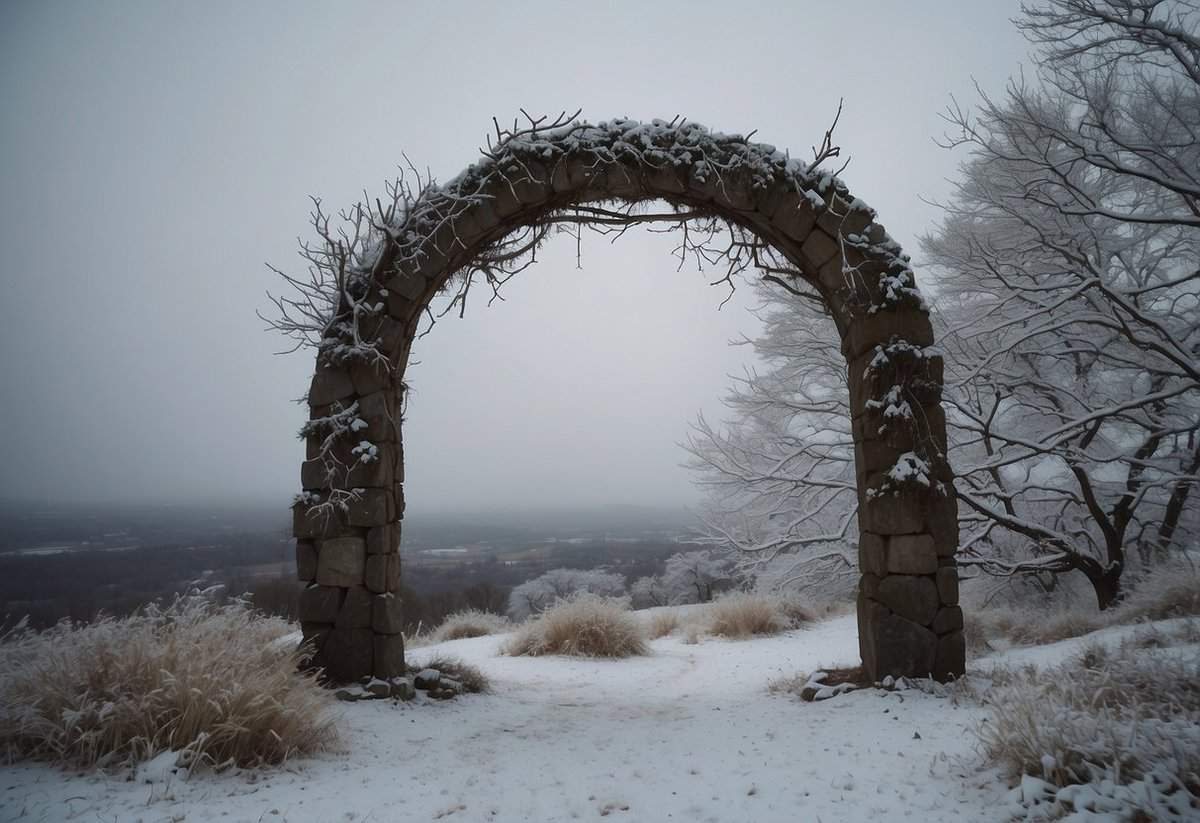
There are many other times of the year beyond the popular months when you can plan a wedding. Consider alternative seasons and unique dates that may offer various benefits.
Trends in Unconventional Wedding Timing
Getting married outside the typical wedding season can be a great choice. Fall weddings, especially in September and October, are very popular, but they aren’t your only option.
Winter weddings, particularly in February, are less common but can be magical and intimate. They also offer options for beautiful, cozy indoor ceremonies. Imagine exchanging vows with a backdrop of snowy landscapes or a warm fireplace.
Another trend is early spring weddings. The flowers are starting to bloom, and the weather is mild. Late spring also provides a lovely setting with better chances for outdoor weddings compared to summer, which can be too hot.
Selecting Your Unique Wedding Date
When setting a date, think about your engagement timeline and the availability of your preferred venues. Summer weddings are highly desirable due to the good weather, but you might face stiff competition for dates. A late spring or early fall wedding date might be a sweet spot—great weather and fewer bookings.
Consider dates special to you and your partner. Maybe the anniversary of your first date or the day you got engaged would make a meaningful wedding date.
Avoiding the most popular months can also help you find better deals on venues and services. And your guests might find it easier to attend if your wedding doesn’t clash with peak holiday seasons or busy calendar dates.
Selecting a less common wedding month could turn your special day into an even more unique celebration.
Planning Your Wedding Around the Date
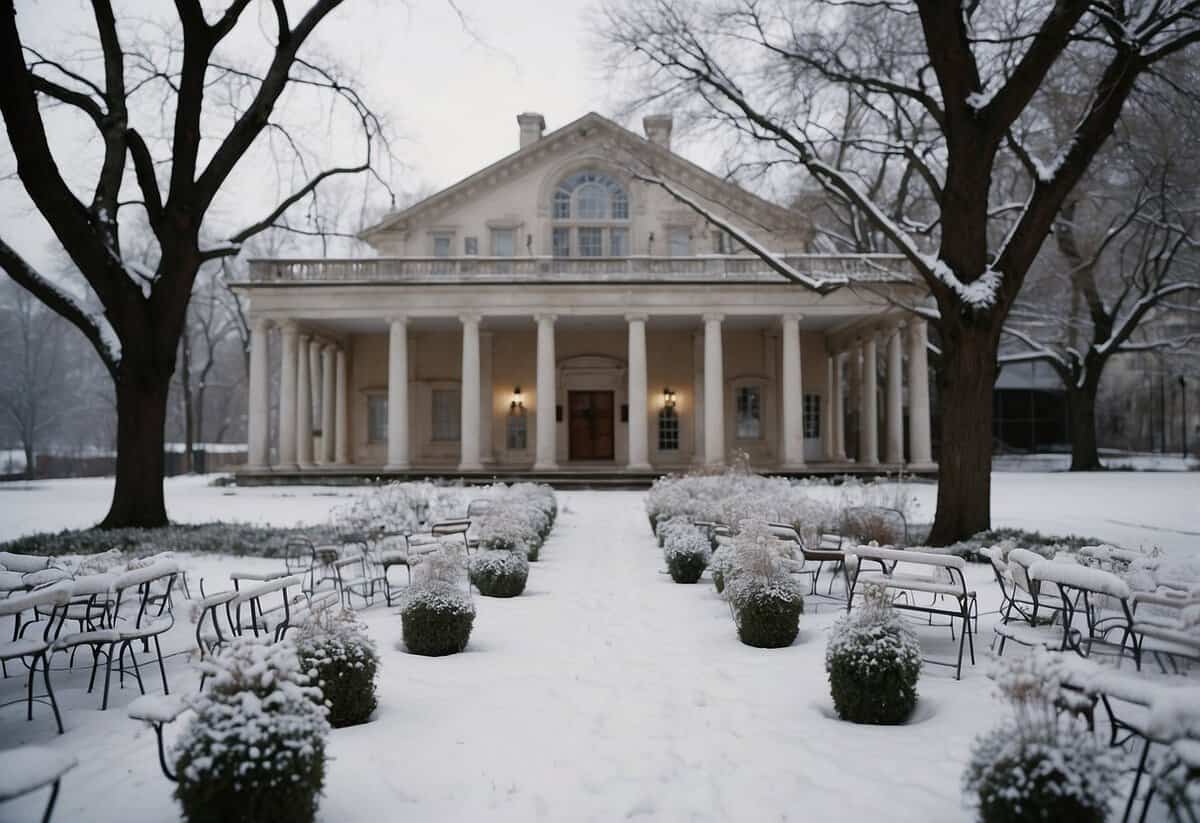
When planning your wedding, it’s important to consider work schedules, seasonal weather, and guest availability. Your chosen date affects your wedding venue, theme, and overall atmosphere.
Wedding Planning Checklist
To start, create a wedding planning checklist. This will help you organize tasks and keep track of what needs to be done.
- Set Your Date: Choosing a date is crucial, especially if you want to avoid peak wedding seasons. September and October are popular wedding months.
- Book Your Venue: Secure your venue early to ensure it matches your theme and guest list size.
- Send Save-the-Dates Early: Inform your guests as soon as possible to accommodate their schedules, especially for out-of-town guests.
- Plan Your Reception: Consider seasonal themes and decorations. For instance, summer allows for outdoor weddings, while winter weddings can be cozy and intimate.
- Arrange Photography: Weather impacts wedding photos, so plan accordingly to capture the best moments.
Keep these points in mind to make sure your wedding planning goes smoothly.
Maximizing the Benefits of Your Wedding Month
Choosing your wedding month wisely can offer several advantages.
Off-Season Savings: Having your wedding in the off-season for weddings often means lower prices for venues and vendors. Winter months, especially February, are less popular, making this a cost-effective choice.
Work Schedules: Schedule your wedding when most guests can attend. Avoid major holidays and busy times of the year.
Atmosphere and Theme: Consider the season’s theme and weather. A summer wedding can be vibrant and fun, while a fall wedding creates a romantic, cozy atmosphere.
Vacation Mode: Plan around guests’ vacation times. Having a wedding during vacation seasons (like summer) can make it easier for guests to attend.
By choosing the right month and date, you can enhance the overall experience for everyone involved.


